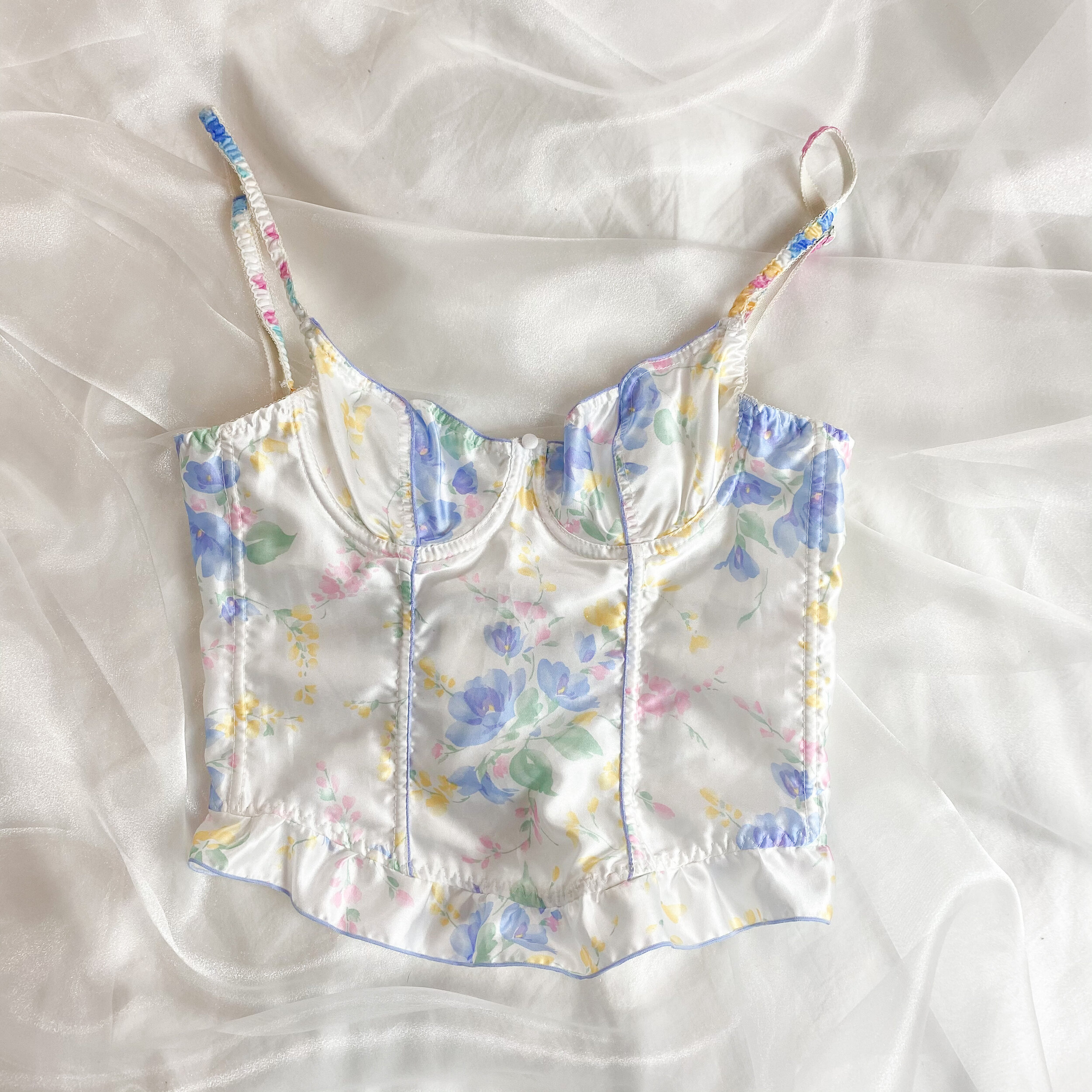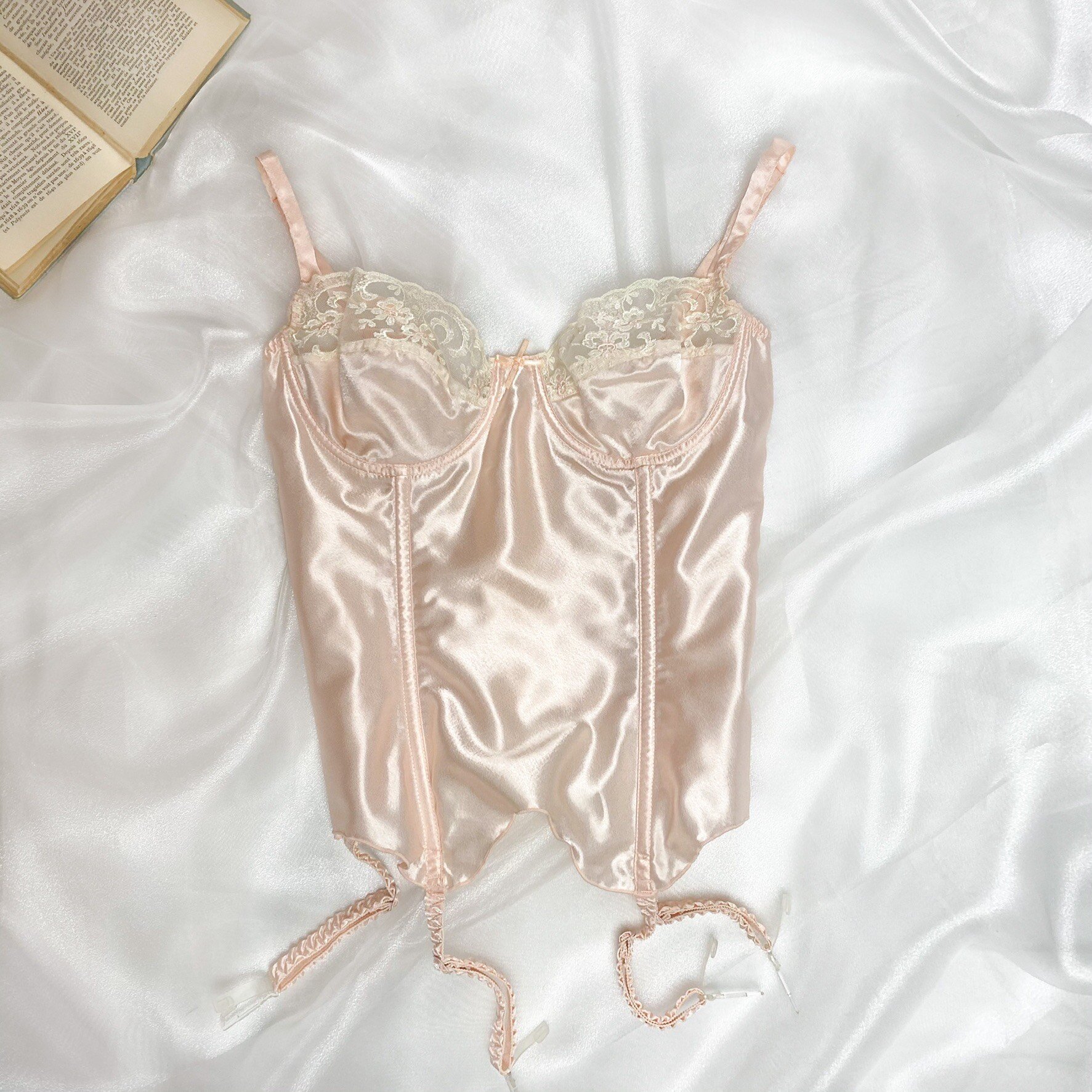Unibabiez, The Attic and Futomomo: Meet the independent shops fulfilling your cottagecore desires
Soft dresses, playful ruffles and delicate lace. A gentle breeze sways the apple tree branches and the field of wildflowers. It smells of fresh linen, sourdough and sweet tea. Rays of sunshine warm up the kitchen and dance on Grandma’s vintage plates which are proudly displayed on the wall…
In terms of aesthetic, the traditional English countryside comes to mind with its nostalgic ceramics and floral prints. However, there is more to the romantic daydream that is cottagecore. While the term was first coined on Tumblr in 2018, we have TikTok to thank for bringing the aesthetic into the mainstream. This Gen-Z subculture is fueled by the desire to live in harmony with nature and is in many ways a reaction to the modern-day detachment from the natural world. The generation indulging in the aesthetic is associated with their commitment to environmental consciousness and a wish to break away from life online as well as the pressures of capitalism. The cottagecore trend was boosted by the first lockdown when more time at home led to blossoming urban spaces, a wave of gardenscape focaccia, and a revived love of traditional crafts like knitting and embroidery.
As cottagecore is expected to be the trend of the summer, we decided to have a chat with the founders of the young-owned independent shops that are fulfilling your cottagecore desires.
Unibabiez
“
In love with this trend! It’s bringing everyone back to the times in fashion that were more elegant, simple and soft. We love a sleek and elegant look.
”
Ivory bustiers, lingerie sets in elegant pastels, embroidered flower details, and butterfly slips. This is Unibabiez – an online store based in the Netherlands specialising in reworked vintage. The team behind the brand is Lucca Ducheine and Max Adriaans. The 22-year-olds met in college but were ultimately brought together by their shared love of fashion and thrifting. This would in turn lead them to found Unibabiez – the name ‘uni’ refers to “united, unisex, universal”, and reflect their commitment to inclusivity both in sizing and style.
Despite being full-time Art students, the pair is responsible for weekly drops of reworked pieces, as well as producing social media content and organising order shipments. “It’s a lot of work especially because it’s just the two of us doing everything. It takes a lot of time, dedication and effort. Special pieces don’t just pop up in your feed. They’re hidden under hundreds of other pieces,” says Ducheine before she is quick to mention that this passion project is never a burden.
To any cottagecore enthusiast’s delight, sustainability is at the core of Unibabiez. “We try to give every piece a new and up-to-trend life. Old items that may not seem to have a chance at another life are reworked, sometimes this means reusing fabric, deep cleaning or dyeing items so they stand out and can be loved again,” says Ducheine. She notes that it is exciting to see the cottagecore trend continuing to inspire people to embrace the beauty of vintage. “Fashion gets more vintage every year! We expect a lot of pastels this upcoming season as well as florals and bright colours. The sleek and silky looks, the corset trend and the soft and puffy cotton clothing will for sure be major,” she says.
The Attic
“
Cottagecore definitely seems to be the thing right now, influenced by Covid and everyone being at home. It’s a return to traditional skills like bread-making, knitting, baking, sewing, foraging, pottery, etc – and the look is less stuffy than the “country” look. It’s more romantic, rural, cosy, natural, and eco.
”
If framed daisy scarves from the 70s, decorative Italian sweetcorn dishes and hand-painted plums on cups and saucers is your kind of paradise, The Attic is certainly heaven on Earth. “I’ve always had an obsession with interiors and homeware, as well as sourcing. There is nothing I love more in the world than scouring charity shops and fairs for special finds, as well as diving into the depths of eBay,” says Lara Atkinson. The 25-year-old is based in London and founded The Attic when she was furloughed during the first lockdown: “I’d never get that sort of free time again, it was the perfect opportunity.” Although this curated vintage store is currently a side hustle, Atkinson hopes to have the ability to do this full-time in the not-too-distant future.
“I think what makes The Attic stand out is that, although what I sell is mostly decades old, the pieces all look quite contemporary due to the way in which I resituate them. Vintage doesn’t always have to look trad and outdated – any item can take on a new life when given a new setting or styled in a new way,” she says and emphasises how a bold and colourful piece of the past can transform a room and give it an individual accent.
Atkinson goes on to explain that The Attic is all about promoting circular buying and repurposing pieces that otherwise would be thrown away. One example she points to is how she is repurposing vintage scarves by framing them and giving them a new life as artworks. “It’s important to invest in things that have stood the test of time and therefore will likely continue to do so, which is why I love vintage,” she concludes.
Futomomo
“
I really enjoy the cottagecore trend – I think it’s inspired people to be more sustainable, to take in the world around them, and appreciate it for what it gives. I also recognise that it’s largely an escapist fantasy and that it is rooted in the dichotomy between work and relaxation. So many people are forced to their limit in our current society, and so I think it’s only natural that many people want to recede into nature.
”
Meet Futomomo – the online store combining the two things which the community of queer women on TikTok seem to love the most: Handmade jewellery and cottagecore. Mushroom necklaces, dangly earrings with cherub silhouettes, pearl drops, and dried flowers are among the pieces of jewellery acting as the perfect cherry on top for many cottagecore enthusiasts. The person behind the brand is 21-year-old Olivia Liu who is based in Chicago and studies philosophy and Asian-American studies.
Futomomo was born during quarantine, a time Liu wanted to spend focusing on personal exploration. “Making art is a way for me to exist as my purest self. When I go to class, I’m learning about someone else’s life. When I work, I’m working for someone above me. By making jewellery and other physical art, I’m present in this world for me and not anyone else,” they say. Liu is inspired by all the things around them, from houseplants to the Chicago snow. But most importantly: “I want people who wear my jewellery to feel confident and magical, and so I try to recreate that in the products I put out. I’ve treated the line between dainty and loud, between subtle and statement. I think it’s wrong to believe cute things can only be small and delicate, and I strive to show that in my jewellery.” They continue: “I think I like to escape into my jewellery, so I love to create things that are fantastical, but also rooted in real life. I’ve been loving creatures like fairies and goblins lately, so I hope to do something with that soon.”
While Liu is enjoying the cottagecore trend, they are also critical of the aesthetic’s roots. While the popularity of cottagecore comes from the desire to reconnect with nature, it is important to be conscious of the fact that this aesthetic is associated with a white, colonial era that should not be glorified. The same can be said about privilege. “I think it’s important to recognise that so many people living these ‘cottagecore’ lifestyles are largely marginalised people: those in rural states, indigenous peoples, and other individuals who don’t have access to the same kind of things one might have in a place with a larger population.” They go on: “The idea that one can just ‘leave’ society is a privileged fantasy, and many people who have done this have been forced out, either by public policy or social ostracisation. Cottagecore, unfortunately, glosses over this idea and creates an illusion of a life far beyond what many people can manage. I think that ultimately, there’s much good in cottagecore and what it can do for your health, but there’s also much to reckoned with beyond its fantastical facade.”
related content
A photography project changing the discourse about queer women and what they look like.
The year is 2020 and gender-neutral restrooms, transgender rights, and non-binary pronouns seem to be on everyone’s lips – but what about single-sex schools?
There is more to the years at school than science and English…
Interview with Renate Nipe, creator of the up-and-coming brand ILAG set to launch August 2020.













